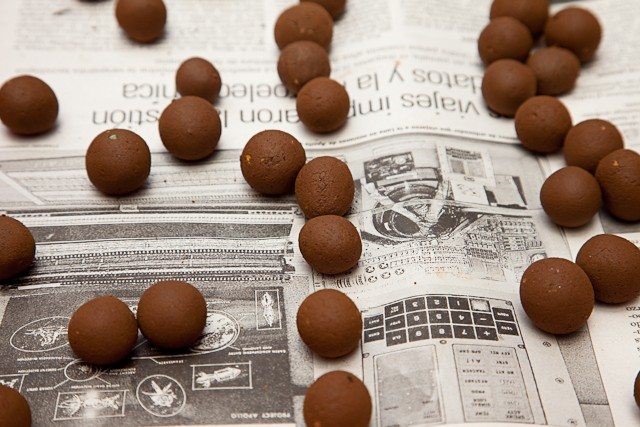Seed balls are a good activity to do with children in late winter when it is not easy to do other outdoor activities or school is virtual. Seed balls are a great way to reseed your landscape and add flowers in barren spots in your flower beds or lawn. Clay seed balls have been used for many years to revegetate eroded land in many countries. Once made, the balls are scattered across the area and left in place. When rainy weather arrives, rain dissolves the clay, the humus feeds the seedling, and the seed begin to grow.

Recipe:
¼ cup of seeds
¾ cup of dry composted humus (Black Cow or Mushroom Compost)
1 cup of sifted red clay*
Mix seeds, composted humus, and sifted red clay in a bowl, adding a little water at a time until the mixture will hold together and form a ball.
If the mixture is too wet just add a little more clay, humus, and seeds until it is the right consistency.
Roll about a tablespoon of the damp mixture between your palms to make a ball.
Put completed balls on a newspaper in a cardboard box or any flat surface, and allow to dry completely in a cool, shady spot for several days (24 to 48 hours) before storing or sowing. If fresh seed balls are not kept in a very cool shady spot area they will begin to sprout.
Dried seed balls store best in a cardboard box, in plastic they may get to hot or sweat.
This is the fun part for kids, let them roll out the seed balls in the areas they and you want to seed. They can be planted carefully or gently toss them one at a time which is a lot more fun. Now just let the seed balls be and let nature do the rest.
* Red clay can be found in many places in Paulding county, craft stores or even on the internet. If you gather red clay let it dry and then sift it with a sifter (part of a child’s sand toy set), metal strainer, or old flour sifter.
The author of this article, Rachel Dutton, is a Paulding UGA Extension Master Gardener. Master Gardeners are trained to provide education for homeowners on horticulture, sustainable landscaping, and environmentally friendly gardening practices using unbiased, research-based information from the University of Georgia. For more information, contact University of Georgia Cooperative Extension in Paulding County to speak with a Master Gardener or County Extension Agent at 770-443-7616 or view our online resources at www.ugaextension.org/paulding.